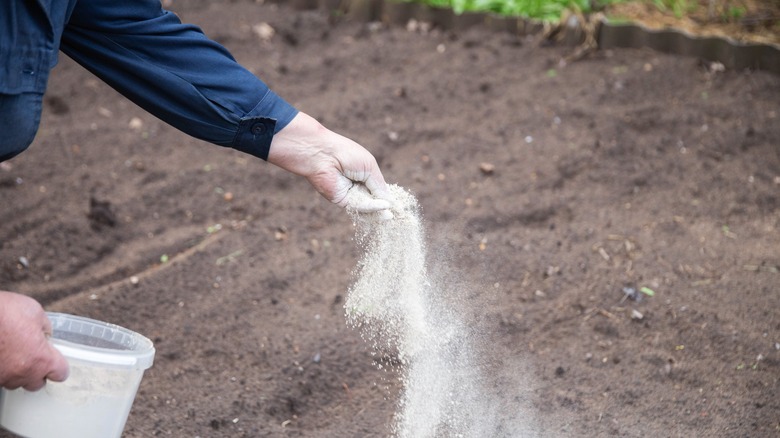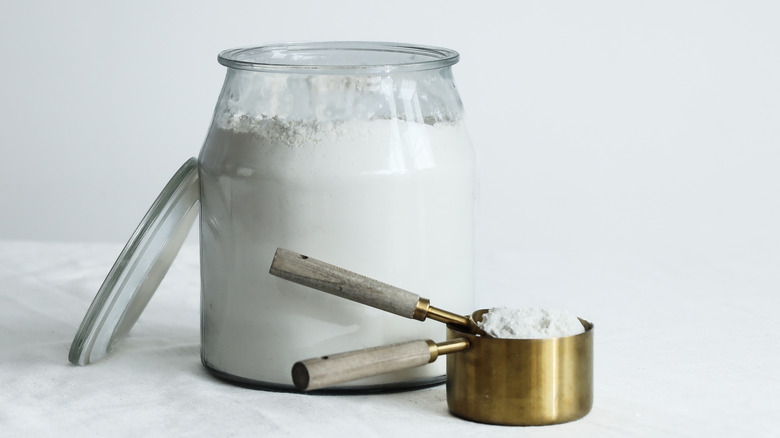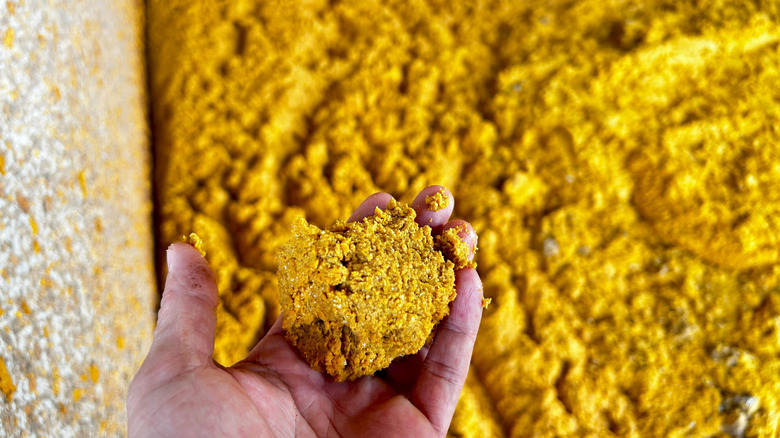Should You Use Flour To Keep Garden Weeds Away? Here's What To Know
You may have seen rumors circulating on the internet about gardeners using flour as a weed suppressant in their yards. Many claim that if you're struggling with pesky weeds, you should add flour to your lawn, and it will kill them. If it seems a little too good to be true, it's because it is. Unfortunately, there is a lot of misinformation online about this claim, and it should be addressed before people start rushing to their pantry or grocery store to sprinkle all-purpose flour on their lawn. Regular baking flour won't be much assistance against your weeds; rather, it's corn gluten meal that has been shown to help prevent weeds from growing.
Instead of taking care of your weed problem, as some people like to claim, regular flour will not get rid of weeds; in fact, flour is sometimes used as a natural fertilizer thanks to its high nitrogen content. In this case, it may actually enrich your soil and help your weeds to grow even more. Flour can be useful in the garden as a nutrient boost for your soil, but there is no proven evidence that it will assist with removing your weed infestation. The next time you see this hack circling on the internet, know that it's probably not worth your time.
What can flour do for your garden?
While regular baking flour might not be useful in suppressing weeds in your yard, this pantry essential might be helpful in other garden tasks. Due to its nitrogen content, flour can boost your garden's soil, making it a suitable fertilizer addition. Flour also contains magnesium and calcium, two other important nutrients for healthy plants. As far as content goes, chickpea flour and whole wheat flour contain the most nutrients. So if you have an extra unused bag or two lying around the house, you may want to save it for your garden.
When using flour as a fertilizer boost, make sure not to add an excessive amount. It's typically recommended to sprinkle in a small amount, mix it into your soil, and then add water. You can also use flour as a way to boost your compost pile, as long as you mix it in small amounts. If you plan on attempting this, don't include any flour that's been mixed with dairy or oils.
What to use as weed killer instead
Instead of using flour to suppress weeds, try corn gluten meal instead. Before you try to sprinkle it onto your weeds, note that this material is not able to get rid of weeds already in place. Corn gluten meal is a preemergence herbicide, and is best used as a weed prevention method, as its natural compounds can halt the growth of roots during a seed's germination process. In other words, if you already have weeds in your garden, this product won't remove them. Additionally, in order for corn gluten meal to be effective in the garden, it needs to contain at least 60% protein. You can purchase this product in granular form at home and garden stores or even online.
One mistake gardeners make about this hack is assuming, like flour, that regular cornmeal works just as well; however, it does not. While the cornmeal we use for cooking is flour made from dried corn kernels, corn gluten meal is a different product — made from the process of grain wet-milling, which is when starch from the endosperm of corn kernels is removed. This protein-rich leftover material is typically used as a source of food for farm animals, as well as a weed suppressant.


